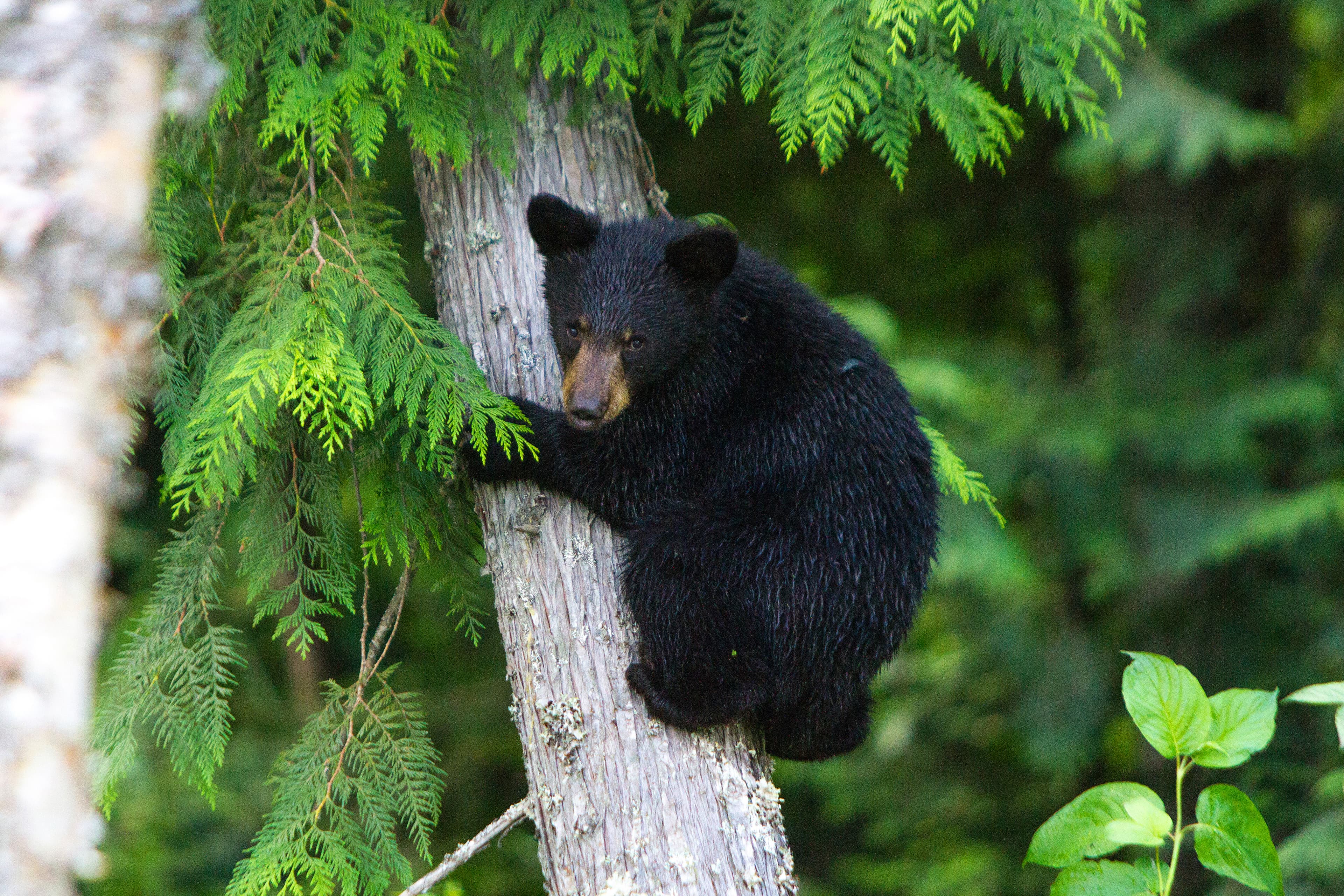We're close to nature, and that can lead to close encounters.
Before heading out to explore our wild spaces, make sure that you are properly equipped and that you have the knowledge to properly deal with wildlife encounters.
Because Revelstoke is situated in the heart of British Columbia's wilderness, wildlife encounters can happen anywhere. Whether you're going for a stroll on the Illecillewaet Greenbelt, driving the Meadows in the Sky Parkway or summiting Mount Begbie, make sure you know what to do if you encounter wildlife while you're out exploring.
Keep Your Distance.
The most important step to avoiding problematic wildlife encounters is simple: give wildlife ample space. Stay at least 100 metres away from bears, cougars, coyotes and wolves. Give other wildlife at least 30 metres of space. Approaching wildlife or allowing wildlife to approach you can lead to them no longer being wary of people and puts yourself, others and wildlife at risk.

Keep campsites and picnic areas clean.
Wildlife is attracted to scents, including food, bath products and cleaning products. If you are camping or picnicking in Revelstoke, ensure that you take care to set up and clean up properly. When leaving your campsite for the day, pack up all cooking equipment. Do not leave any garbage or food unattended.
If you are camping in the backcountry, some sites have bear storage lockers. In campsites without bear lockers, you will need to be prepared to make a bear hang.

Young Black Bear Cub | P Matt Timmins
Carry Bear Spray.
If you plan on heading out to hike, you're heading into bear country. Make sure that you carry bear spray and check the expiration date. Read and understand the instructions for use. Ensure that your bear spray is easily accessible and not tucked away in your pack.
If you do encounter a bear on the trail, maintain a safe distance, back slowly away, and give it a wide berth. If the bear approaches you, back away and wave your arms. Your bear spray is your last line of defence to be used when a bear is within 10 metres of you.

Black Bear | P Shoal Raymond
Keep Control of Your Pets.
In our National Parks, your pets must be on leash, and there are some areas where pets are not allowed at all (the summit of Mount Revelstoke, for example). It's essential that visitors respect these restrictions and closures for the health of humans and wildlife.
If you are exploring the outdoors with your dog, ensure that your dog is on a leash or that they have excellent recall.

Soren Sorenson 5km Loop, Mount Revelstoke NP | Parks Canada
Respect regulations and closures.
Some wilderness areas are permanently closed to certain types of traffic to protect both visitors and wildlife. In particular some areas are closed to protect mountain caribou habitat.
Parks Canada will sometimes institute specific regulations about group numbers or close specific trails because of problem wildlife.
Our Visitor Information Centre is a great source for the latest closures and regulations.

Respect Wildlife.
If you see wildlife on your adventures, observe it from a distance. Do not follow or approach wildlife.
Do not feed animals. Feeding wildlife can be harmful to their health and can alter their natural behaviours. Keep your garbage secure to avoid feeding them accidentally.
Keep your pets under control or leave them at home.

Black Bear | P Unknown


